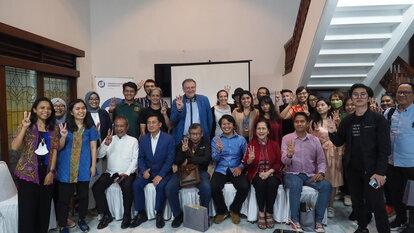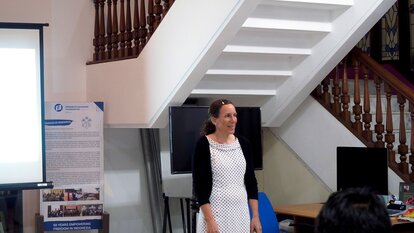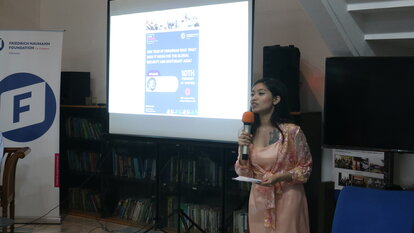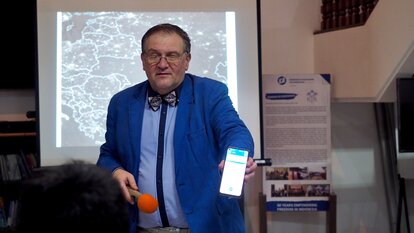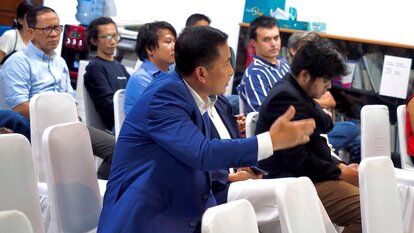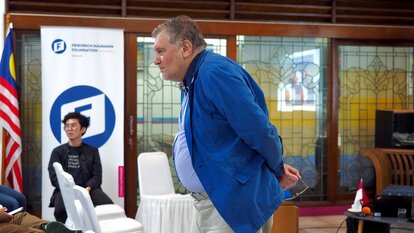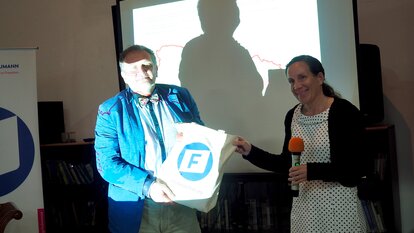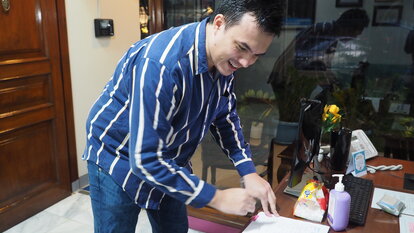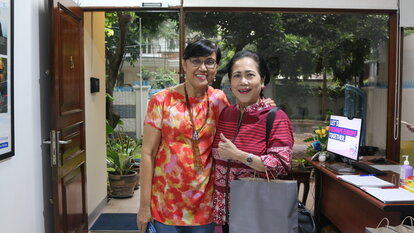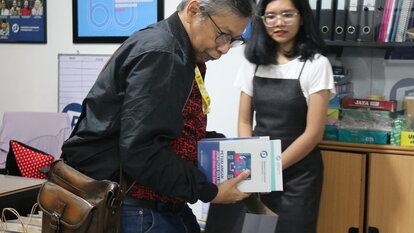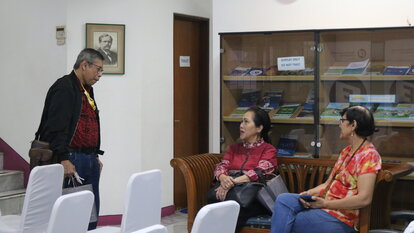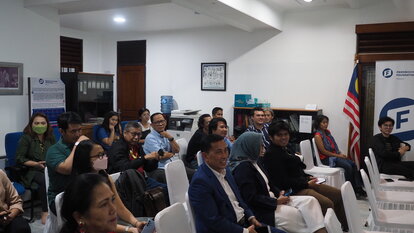Reshape Europe
'One Year of Ukrainian War: What Does it Mean for Global Security and Southeast Asia?' - FNF Indonesia Alumni Gathering 2023
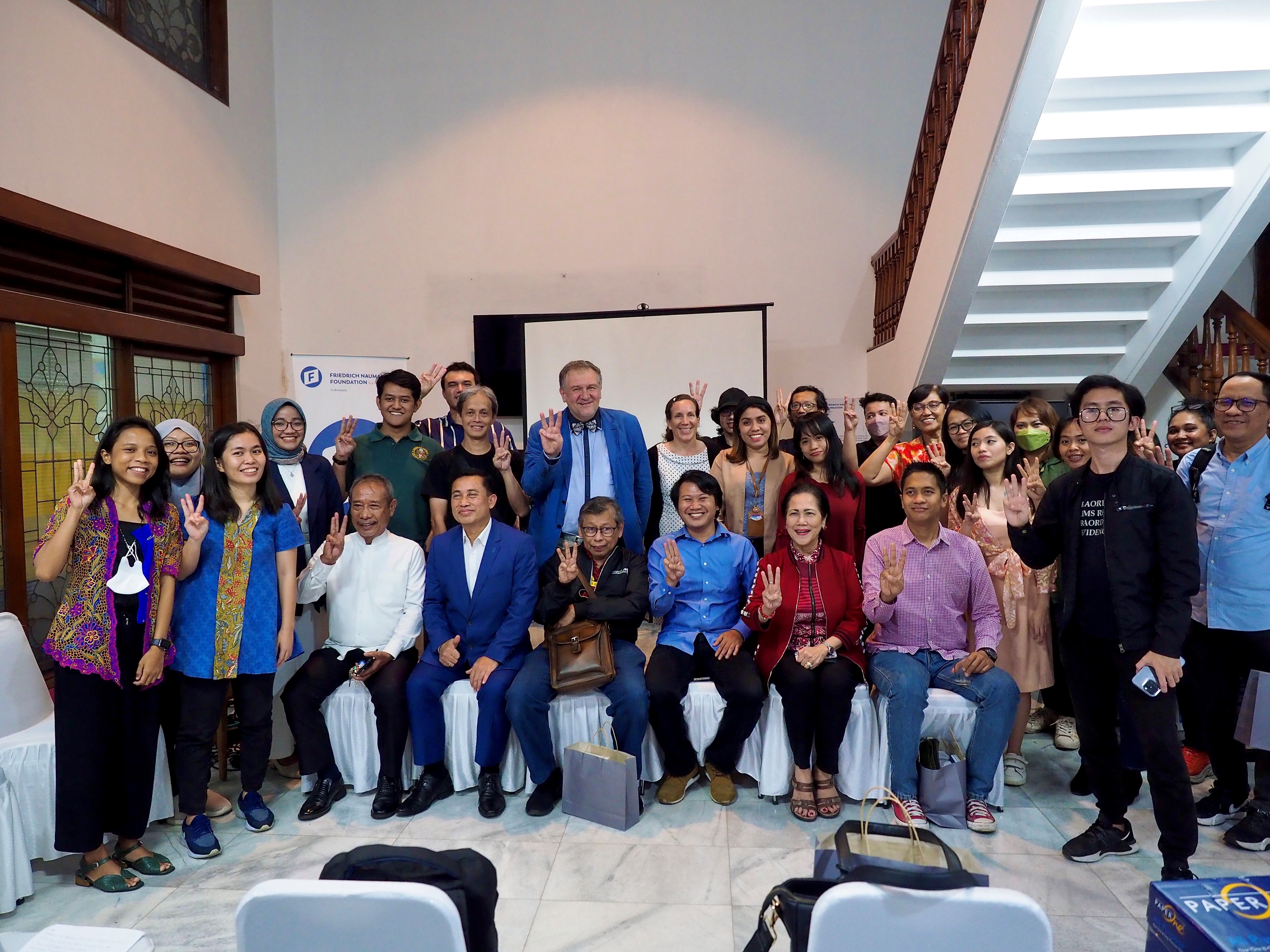
On February 10, 2023, FNF Indonesia held our annual alumni gathering in our office. Following the major subject of FNF Global #ReshapeEurope this year, we asked Prof. Olexiy Haran from the University of Kyiv Mohyla Academy (UKMA) in Kyiv, Ukraine, to speak about the war in Ukraine through the perspective of a Ukrainian and a Ukrainian scholar. We think that the event titled 'One Year of Ukrainian War: What Does it Mean for Global Security and Southeast Asia?' will help us comprehend how the war impacts global security, particularly in Southeast Asia.
Although Southeast Asia is somewhat remote from where the battle is now taking place, we believe that it will have a massive influence on areas all over the world, including ours. Ukraine, as is commonly known, is the largest supplier of wheat to the rest of the globe. With the battle continuing on, it will undoubtedly have an influence on the nations that recuperate their wheat demands from Ukraine, causing a shift in those countries. It has a significant impact not just on wheat supply, but also on worldwide security because of the aforementioned war's domino effect. Some scholars highlighted the possibility of the war that may lead to the growing China’s aggressiveness in the South China Sea dispute, which would have a significant influence on the region’s stability.
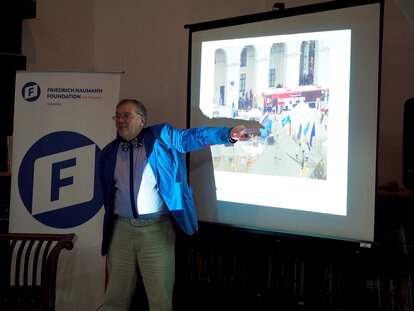
Prof. Olexiy Haran from University of Kyiv Mohyla Academy presenting his lecture at FNF Indonesia Alumni Gathering 2023.
The conflict in Ukraine has produced a wide range of viewpoints on who to support, even in Indonesia. Many Indonesians appear to "support" Russia's assault towards Ukraine for a variety of reasons: Indonesian society's anti-Americanism and anti-Western attitudes, as well as religious factors. It is widely known that there is a tension between Western countries (re: US) and Russia, and ever since the West launched its initially called "war on terrorism" especially against Iraq and Afghanistan, it has sparked a wave of disappointment and disagreement among Indonesians. Being the country with the biggest Muslim population, this conduct is strongly opposed, prompting many Indonesians to adopt anti-America and anti-Western beliefs. This eventually led to many Indonesians supporting those who are also against the West, including Russia. In addition to that, Russian media is more accessible in Indonesia via numerous sources, including TV channels, than Ukrainian media. This lead to Indonesians readily "falling victim" to Russia's "propaganda" and obtaining information from only one side rather than both.
Prof. Haran later rectified these perceptions during his presentation at our event. Prof. Haran is a professor of Comparative Politics in UKMA. He has been the Founder Director of the UKMA School for Policy Analysis since 2002, and the Research Director of the Democratic Initiatives Foundation, a renowned Ukrainian analytical and sociological think tank, since 2015. He is the co-editor of various works, including "Constructing a Political Nation: Developments in Ukrainian Views During the Donbas War" (2017), "Ukraine in Europe: Questions and Answers" (2009), "Russia and Ukraine: Ten Years of Transformation" (Moscow 2003), and others. He is also a regular pundit in Ukrainian and foreign media. He has been a prominent Ukrainian political scientist, serving as the member on the Public Council of Ukraine's Ministry of Foreign Affairs.
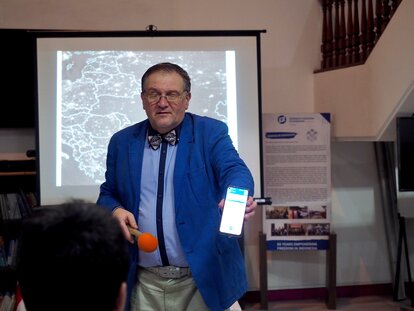
Prof. Haran showing an application on his phone that gives updated news and alerts about the situation in Ukraine.
He clearly stated that many people believed this was a conflict between the West and Russia, but it is not. This is Russia, acting on Putin's orders, attempting to reclaim the grandeur of Russia's empire glory by attempting to "reclaim" their territory, which is Ukraine's territory. He subsequently remarked that the war is not about ethnicity or differing ideals, but over territory. Ukrainians used to have a good perception toward Russia, but that changed dramatically since Moscow began its aggressiveness, particularly with the annexation of Crimea in 2014. The annexation breached the 1994 Budapest Memorandum, in which Ukraine gave up its third-largest nuclear arsenal in return for "security guarantees" from the United States, the United Kingdom, and Russia.
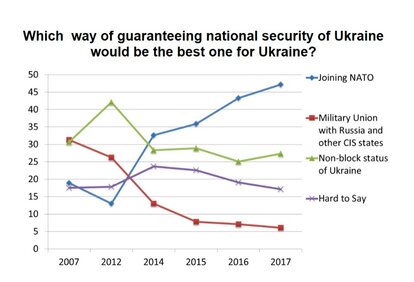
A graph chart showing the declining trust of Ukrainian towards Russia. (*from Prof. Haran's powerpoint presentation.)
We believe we are in the right side of the history.
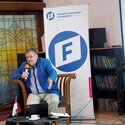
During the second half of the program, we had a Q&A session where our alumni had the opportunity to ask Prof. Haran questions and get answers and further information about the issue. Our alumni were eager to ask questions, which Prof. Haran was glad to answer and explore further. We learnt a lot about the war in Ukraine from him, and we were honored to have a Ukrainian guest giving us first-hand information. We do hope that the war will end soon.
-------
Rania Rizkiadinda is FNF Indonesia's Communications Officer and Program Assistant for Climate Change projects since July 2022.

